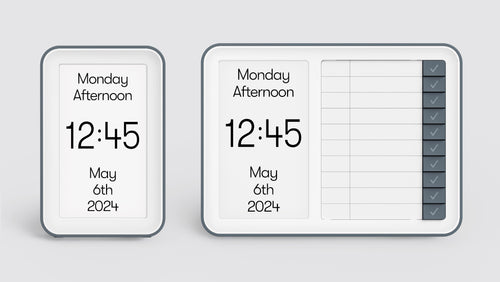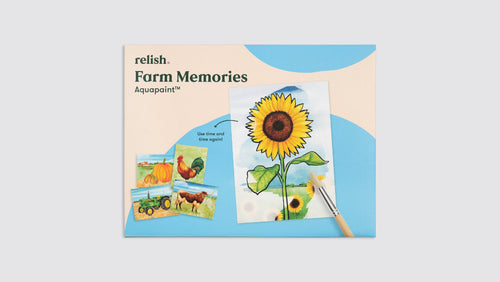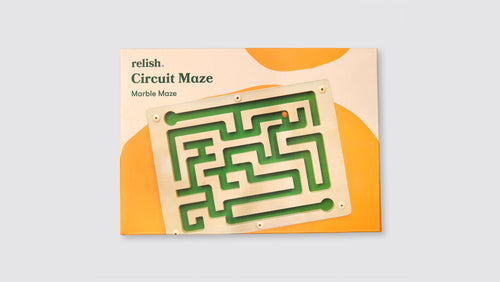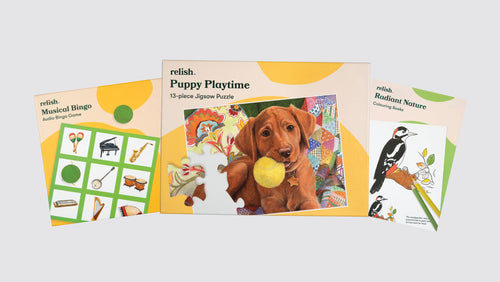What is that one song that makes you feel like you could take on the world? You know, that song that ignites a fire within you and tells you that there isn’t a thing that can't be done.
Whether it is “I Will Survive” by Gloria Gaynor or “Firework” by Katy Perry, everyone has one. While yes, your song may be incredibly groovy and have lyrics that seem as though they have come out of a motivational TED Talk, did you know that there is actually science behind why it is that you feel this way?
Feelings of self-worth, confidence, control and empowerment are proven to result from listening to songs we know and love because they trigger a release of dopamine, a neurotransmitter within our brain that is linked to feelings of happiness and pleasure. The great part of music is that there are so many music genres and artists out there, that everyone can find music that not only suits them but is uniquely their own. That is what makes music such a great coping tool to introduce to your loved ones living with dementia because there is no right or wrong way, or strict guidelines, all they have to do is listen to begin feeling a sense of independence and confidence in their lives.
It is not uncommon to notice new behaviours and emotions arising more frequently among your loved ones living with dementia. Feelings such as increased insecurity, lack of self-confidence, as well as the sense that they are no longer independent and in control of their life, are all common in the early stages. However, through simple activities like listening to music, these feelings can be made less prominent and give your loved one a chance to have some fun and rediscover some old tunes they may have forgotten. For inspiration, take a look at this uplifting musical interlude activity designed especially for people living with dementia.
The Relish Radio
Our new product, the Relish Radio, was made to stimulate reminiscence and feelings of happiness in people with dementia. We have specifically designed our radio around the intention of assisting your loved ones to rediscover their sense of independence by incorporating easy-to-navigate features to reduce any possible confusion about how it is to work. Our radio includes a personalised feature that allows each person to preset their favourite channels or tunes. As your loved one begins to take control by playing all the songs that they love, without any assistance, not only will the music help delay cognitive decline, but you will also notice their sense of self begins to reappear as they happily tap along to the beat of the music.

Why Does it Work?
An interesting study conducted by, Dr. Paul Elvers, a postdoctoral researcher from Goldsmiths University in London, demonstrates the positive relationship between empowering music, feelings of self-enhancement, and a “high level of self-worth, such as power, confidence, control, and optimism” within one's life. As he describes, self-enhancement is when you interpret and process the positive stimuli around you and attribute them to yourself. He states that empowering music directly contributes to feelings of self-enhancement and consequently, increases self-esteem and your independent sense of self. This process begins when you turn
on one of your favourite empowering songs. As you listen, you begin to project the lyrics, or whatever it may be that makes you feel most confident, onto yourself as if you were the singer or composer behind the music. As you put yourself in “their shoes”, you begin to empathise, taking on their emotion and feeling it as your own. We all have a collection of these songs that, as soon as we put them on, we immediately feel more empowered, confident, and even on our worst days, they still manage to put a smile on our faces because it feels as though the lyrics are saying exactly what we need to hear. Since everyone has a different definition of“empowering”, the songs that boost your self-esteem may be very different from those of your neighbour, and that is perfectly fine. Music is about the one listening, and no one else, which is why it can be so helpful when reinjecting independence and control back into the lives of those with dementia.
The Relish Radio incorporated the process of being able to choose and program favourites directly into the product, giving users more control, as well as allowing them to reconnect with their individuality as they reminisce on the music that they once loved. It is important to note that giving your loved ones the ability to pick their own music is key when aiming to restore independence, as they are the ones who truly know what music speaks to them. After a little guidance and they see that they are capable of playing music by themselves, they will begin to feel more confident, independent, and regain assurance in their abilities knowing they are still capable of creating their own happiness.
















